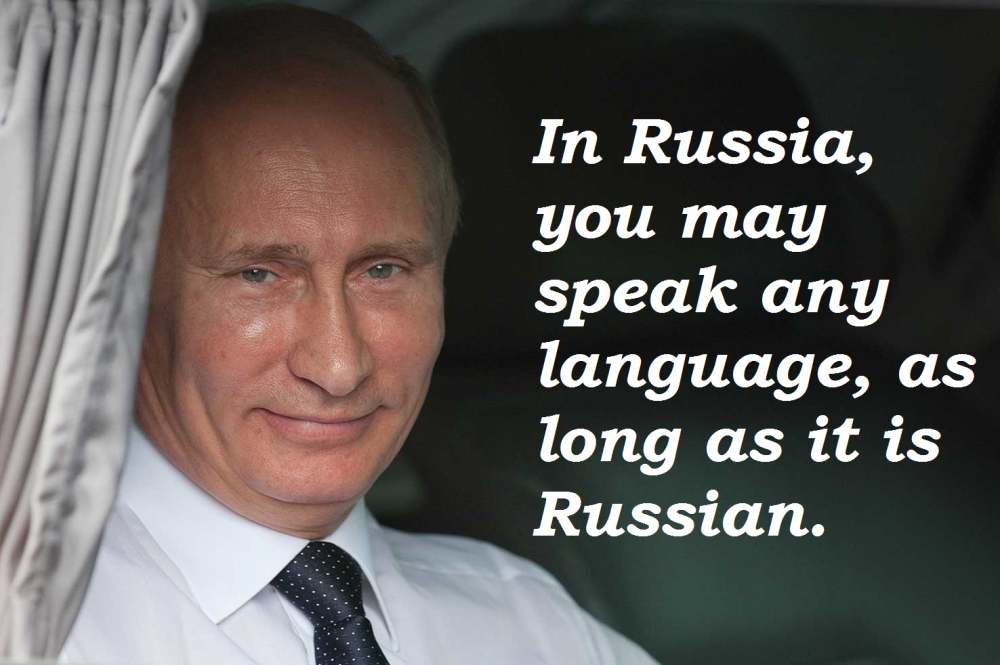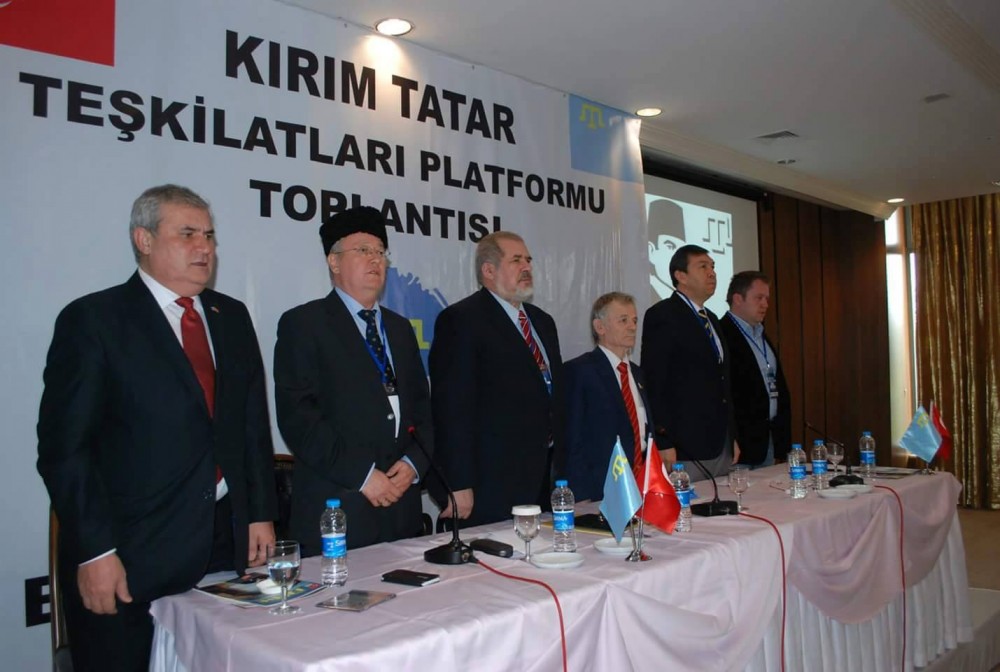More than most governments, the Kremlin behaves in exactly the same way it routinely accuses other countries of doing, adopting patently double standards on issues ranging from separatism – it opposes it vigorously within Russia while sponsoring it elsewhere – to the status of Russian language in former Soviet space.

In a new article, Vadim Shtepa, a Russian regionalist now living in exile in Estonia, points out the obvious: the Kremlin condemns precisely those countries that in fact are most supportive of Russian and avoids condemning those that are the least when it suits its political interests.
Vladimir Putin in his recent message to Uzbekistan on the occasion of the death of Islam Karimov failed to say anything about the fact that even though 20 percent of the population of Tashkent consists of ethnic Russians, there are “only two schools with Russian as the language of instruction,” Shtepa notes.
That is typical of Putin’s and Moscow’s approach to almost all the governments in Central Asia, even though the ethnic Russian and Russian-speaking portions of the populations of the five countries there have fallen dramatically as the two groups return to Russia, the Karelian regionalist says.
In Tajikistan, where Russia has a military base, the situation is somewhat better for Russian speakers, but only because it is their children for whom the remaining 26 Russian language schools in that country appear to be functioning. (There are only 35,000 ethnic Russians left in Tajikistan.)
The situation in Kazakhstan and Kyrgyzstan is somewhat better from a Russian point of view. Both these countries have designated Russian in their constitutions as “the language of inter-national communication.” Nonetheless, the share of Russians in Kazakhstan has fallen by a third since 1999 and the number of Russian schools by more than that to 1524.
Kyrgyzstan has the same number of Russian language schools – 162 – but for the same reason that Tajikistan has kept some open: they are in the first instance for children of Russian military personnel at the Kant airbase, Shtepa says.
These trends would seem to make Central Asia an appropriate target for Moscow’s criticism, but there has been little with regard to language issues. Instead, because “the Kremlin considers these countries as the unqualified zone of its influence,” it does not raise the issue lest it offend local leaders.
But with regard to the Baltic countries, Georgia and Moldova, states which have reoriented themselves away from Moscow and toward the West. Moscow’s criticism, often picked up in the West by those who do not or choose not to know any better, has been nearly constant.
And that despite the fact that these countries are more supportive of Russian language education than are the Central Asians. In Tallinn, there are today four schools and 11 gymnasia with Russia as the language of instruction. In Riga, 56 of the 152 primary and secondary schools are Russian-language. And in Vilnius, there are 21 Russian schools even though Russians there form only 21 percent of the population.
As Shtepa points out, “Kremlin propaganda loves to accuse Estonia and Latvia” of oppressing “’the non-citizens.’” But since the start of this year, all the children of “’non-citizens’” in Estonia “automatically get citizenship, even as Moscow has imposed visa restrictions on those Russians born in these countries after 1992.
Ukraine currently has 1256 schools in which Russian is the language of instruction and in which about 700,000 of the pupils are Russians or Russian-speakers. But since the 2014 invasion, Moscow propagandists have repeatedly charged that Ukraine is closing all Russian-language schools and suppressing Russian-language institutions.
Moscow’s policies in occupied Crimea are especially instructive. The Russians proclaimed that there are now three state languages there, Russian, Ukrainian, and Crimean Tatar, but the number of children studying in Crimean Tatar has declined from 5406 before the Anschluss to 4740 now.
Related:
- Moscow's invasion hasn't affected Russian language rights in Ukraine, experts say
- Russia 'for first time in its history' has lost its monopoly on the Russian language, Zhadan says
- Under Russian occupation, Crimean Tatar language rights exist 'only on paper,' Turkish rights activists say
- Russia's actions in occupied Crimea show how Moscow plans to destroy non-Russian languages in Russia itself
- Putin launches broad new attack against non-Russian languages
- Babchenko: Putin, not Poroshenko, has destroyed future of Russian language in Ukraine
- Chronology of the Ukrainian language's 134 prohibitions in 400 years





